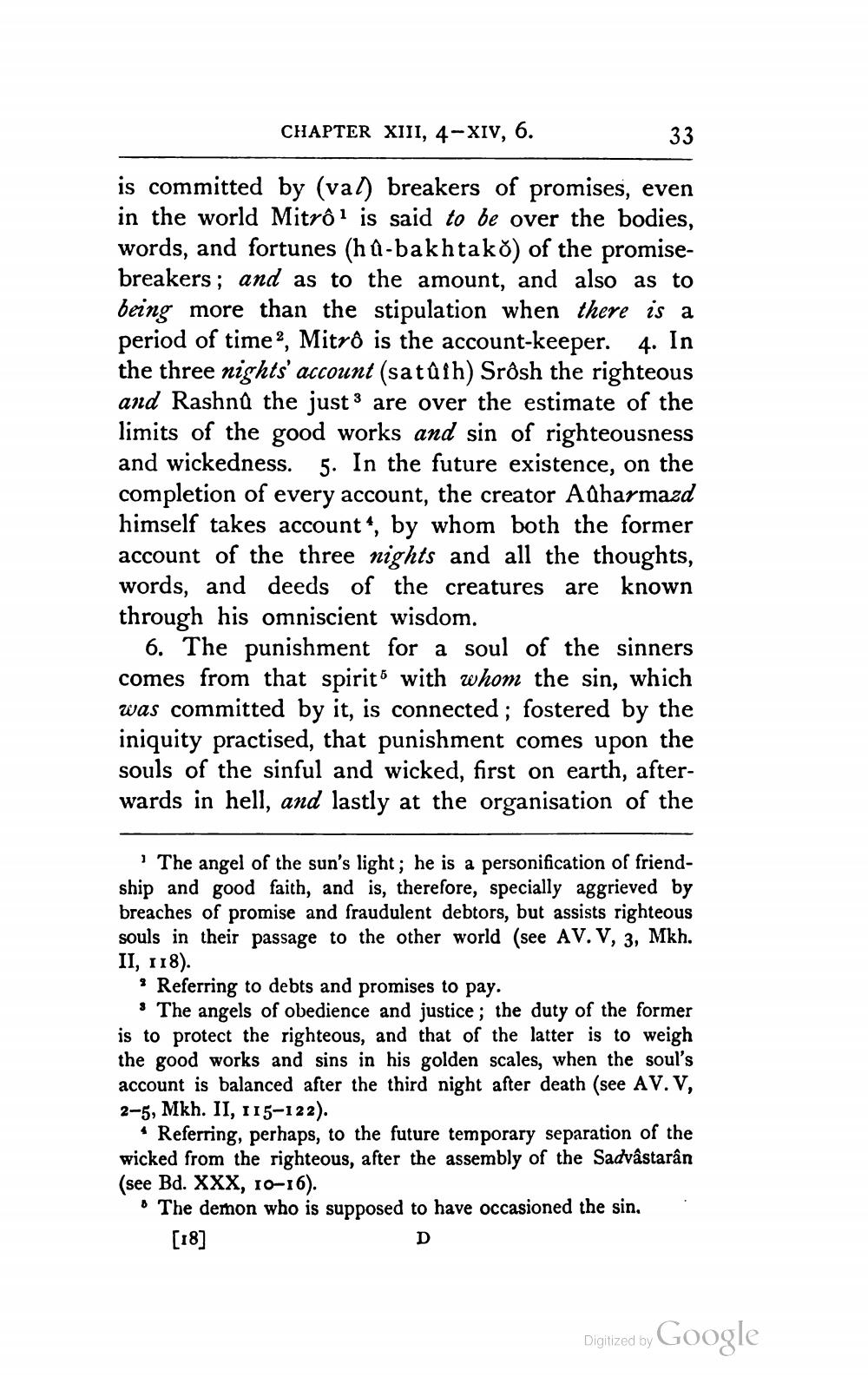________________
CHAPTER XIII, 4-XIV, 6.
33
is committed by (val) breakers of promises, even in the world Mitrô1 is said to be over the bodies, words, and fortunes (hû-bakhtakŏ) of the promisebreakers; and as to the amount, and also as to being more than the stipulation when there is a period of time, Mitrô is the account-keeper. 4. In the three nights' account (satûih) Srôsh the righteous and Rashnû the just are over the estimate of the limits of the good works and sin of righteousness and wickedness. 5. In the future existence, on the completion of every account, the creator Aûharmazd himself takes account, by whom both the former account of the three nights and all the thoughts, words, and deeds of the creatures are known through his omniscient wisdom.
6. The punishment for a soul of the sinners comes from that spirit with whom the sin, which was committed by it, is connected; fostered by the iniquity practised, that punishment comes upon the souls of the sinful and wicked, first on earth, afterwards in hell, and lastly at the organisation of the
'The angel of the sun's light; he is a personification of friendship and good faith, and is, therefore, specially aggrieved by breaches of promise and fraudulent debtors, but assists righteous souls in their passage to the other world (see AV. V, 3, Mkh. II, 118).
Referring to debts and promises to pay.
The angels of obedience and justice; the duty of the former is to protect the righteous, and that of the latter is to weigh the good works and sins in his golden scales, when the soul's account is balanced after the third night after death (see AV. V, 2-5, Mkh. II, 115-122).
Referring, perhaps, to the future temporary separation of the wicked from the righteous, after the assembly of the Sadvâstarân (see Bd. XXX, 10-16).
• The demon who is supposed to have occasioned the sin.
[18]
D
Digitized by
Google




